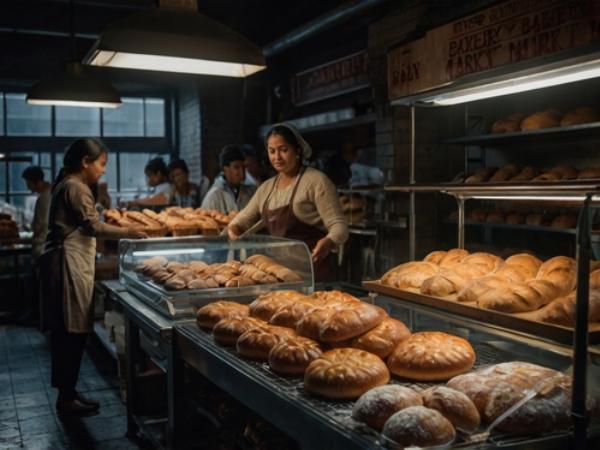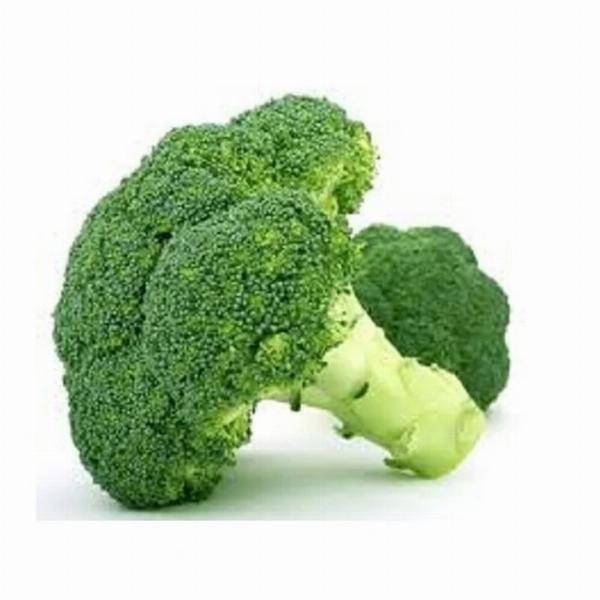 Zapier Automation – Automate Publishing. Free Your Time!
Zapier Automation – Automate Publishing. Free Your Time!
India Bakery Market Growth by 2031: A Comprehensive Analysis
Written by Mark » Updated on: June 17th, 2025

Introduction
The India bakery market is projected to witness substantial growth by 2031. This growth is driven by evolving consumer preferences, increasing disposable incomes, and advancements in technology. The bakery sector, encompassing a wide range of products such as bread, cakes, pastries, cookies, and biscuits, is transforming from a traditionally unorganized segment to a more structured and competitive industry. This comprehensive analysis explores the factors contributing to this growth, the emerging trends, market challenges, and future prospects.
Market Dynamics
The bakery market in India has long been dominated by small, local bakeries. However, the landscape is shifting towards organized players who emphasize quality, branding, and market reach. These changes are fueled by several factors that collectively drive the market's growth.
Key Growth Drivers
Urbanization and Lifestyle Changes: Rapid urbanization and changing lifestyles have led to a greater demand for convenient, ready-to-eat bakery products. Urban consumers, especially in metropolitan areas, are increasingly seeking quick and easy food options, boosting the demand for bakery items.
Rising Disposable Incomes: The growing middle class and increasing disposable incomes are enabling consumers to spend more on premium and gourmet bakery products. This trend is particularly evident in urban and semi-urban areas where consumers are willing to pay a premium for high-quality items.
Health Awareness: As consumers become more health-conscious, there is a rising demand for healthier bakery options. Products made with whole grains, multigrains, low sugar, and gluten-free ingredients are gaining traction.
Expansion of Retail Chains: The expansion of retail chains, supermarkets, and hypermarkets has made bakery products more accessible to a larger population. These retail outlets offer a wide variety of bakery items, catering to diverse consumer preferences.
Innovative Marketing Strategies: Companies are adopting innovative marketing strategies, including attractive packaging, promotional offers, and digital marketing campaigns, to attract and retain customers.
Technological Advancements
Automation in Production: To meet the growing demand and ensure product consistency, many bakeries are adopting automated production processes. Automation not only increases production efficiency but also helps maintain high hygiene standards.
E-commerce and Online Delivery: The rise of e-commerce platforms has transformed the bakery market. Consumers can now easily order their favorite bakery products online and have them delivered to their doorstep, enhancing convenience and accessibility.
Advanced Baking Techniques: The adoption of advanced baking techniques and equipment is helping bakeries produce a wide variety of products efficiently. This includes specialized ovens, mixers, and proofers that ensure consistent quality.
Consumer Preferences and Trends
Premium and Artisanal Products: There is a growing preference for premium and artisanal bakery products. Consumers are seeking high-quality, handmade items with unique flavors and ingredients. Artisanal bread, gourmet cakes, and pastries are particularly in demand.
Fusion Flavors and Regional Specialties: Combining traditional Indian flavors with Western baking techniques is creating unique and appealing products. For instance, cakes and cookies infused with spices like cardamom and saffron are becoming popular. Additionally, regional specialties such as Mumbai’s brun pav and Kolkata’s roshogolla cake cater to local tastes.
Convenience and Ready-to-Eat Products: Ready-to-eat bakery items that can be consumed on the go are gaining popularity. Packaged cakes, pastries, and snack bars are becoming common in the daily diet of busy urban consumers.
Challenges in the Market
Supply Chain Management: Ensuring the freshness and quality of bakery products requires efficient supply chain management. Proper storage, transportation, and timely delivery are crucial to maintaining the product's shelf life.
Competition from Unorganized Sector: Despite the growth of organized players, a significant portion of the bakery market is still dominated by small, unorganized bakeries. These players often compete on price, posing a challenge for established brands.
Regulatory Compliance: Adhering to food safety and hygiene regulations is essential but can be challenging. Compliance with standards set by the Food Safety and Standards Authority of India (FSSAI) and other regulatory bodies requires significant investment in quality control processes.
Innovations and Sustainability Practices
Eco-friendly Packaging: There is a growing focus on sustainable packaging solutions to reduce environmental impact. Many bakeries are adopting biodegradable and recyclable materials for packaging their products.
Waste Reduction: Reducing food waste during production and distribution is another important trend. Efficient inventory management, better forecasting, and recycling unused ingredients are practices being adopted by bakeries to minimize waste.
Product Diversification: Introducing innovative products, such as fortified bakery items with added nutrients, can cater to the health-conscious segment. Additionally, seasonal and limited-edition products can attract consumers looking for variety.
Future Prospects
The India bakery market is expected to continue its growth trajectory, with several opportunities for expansion:
Regional Penetration: There is significant potential for growth in tier 2 and tier 3 cities. As disposable incomes rise and urbanization spreads, the demand for bakery products is likely to increase in these areas.
Technological Investments: Continued investment in technology, particularly in automation and digital platforms, will be crucial for scaling up operations and meeting consumer demand efficiently.
Health and Wellness Focus: As health awareness grows, bakeries that can offer healthier alternatives without compromising on taste will have a competitive edge. This includes products made with whole grains, reduced sugar, and natural ingredients.
Customization and Personalization: Offering customized and personalized bakery products, such as personalized cakes for special occasions, can cater to the growing demand for unique and bespoke items.
Conclusion
The India bakery market is on a path of significant growth, driven by changing consumer preferences, rising disposable incomes, and technological advancements. While there are challenges to navigate, the market offers ample opportunities for innovation and expansion. Companies that can adapt to consumer demands, invest in technology, and focus on quality and sustainability are likely to lead the market in the coming years. By 2031, the bakery sector in India is expected to be more dynamic, diverse, and inclusive, catering to a wide range of tastes and preferences.
Note: IndiBlogHub features both user-submitted and editorial content. We do not verify third-party contributions. Read our Disclaimer and Privacy Policyfor details.
Copyright © 2019-2025 IndiBlogHub.com. All rights reserved. Hosted on DigitalOcean for fast, reliable performance.













